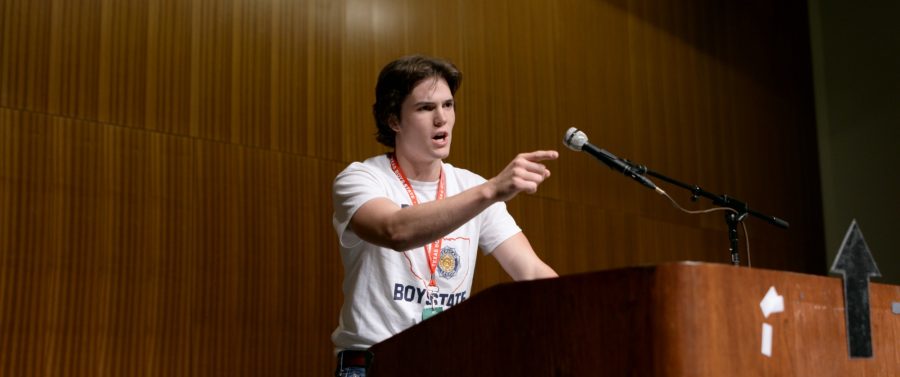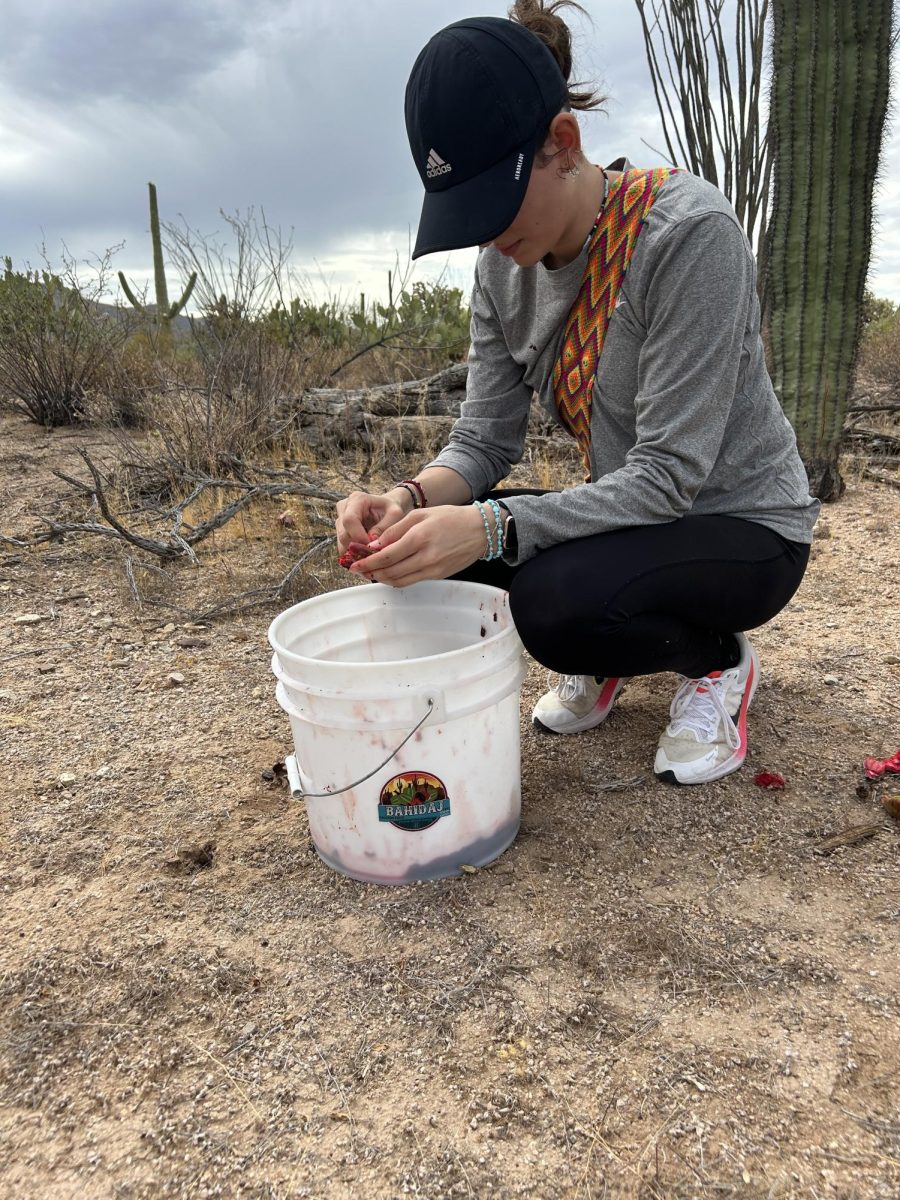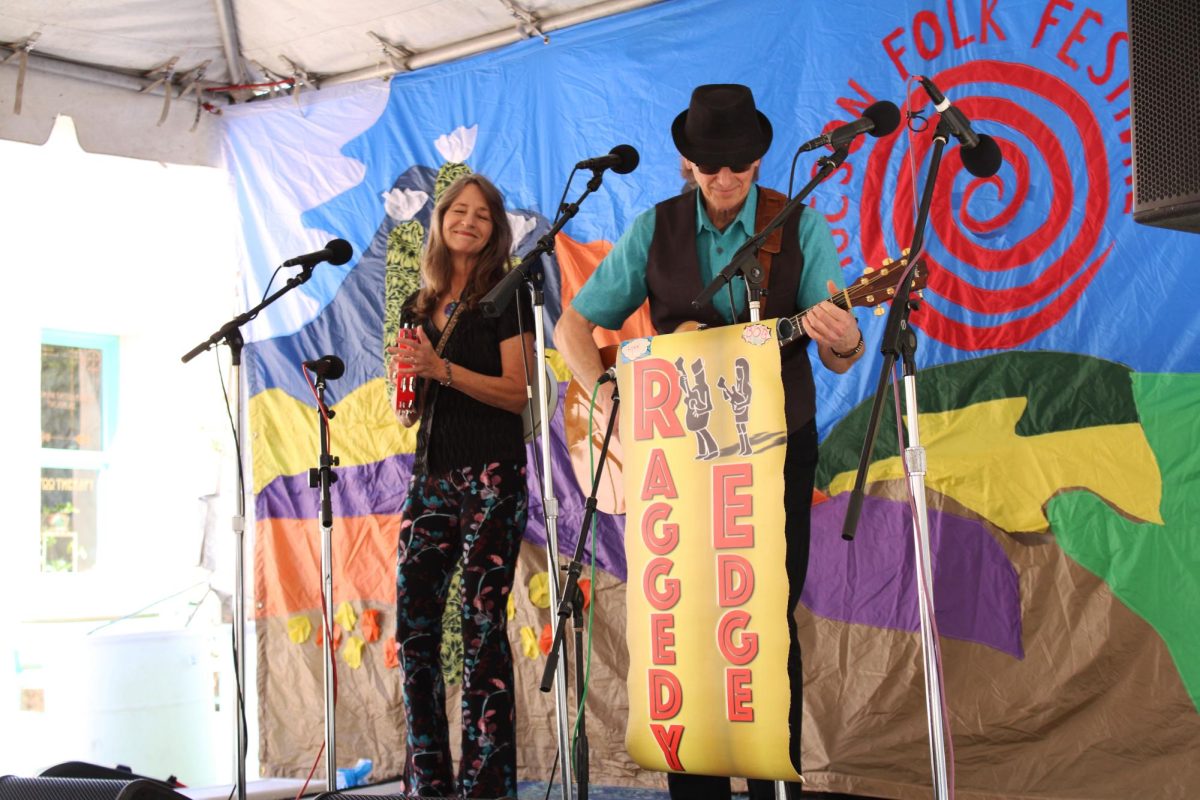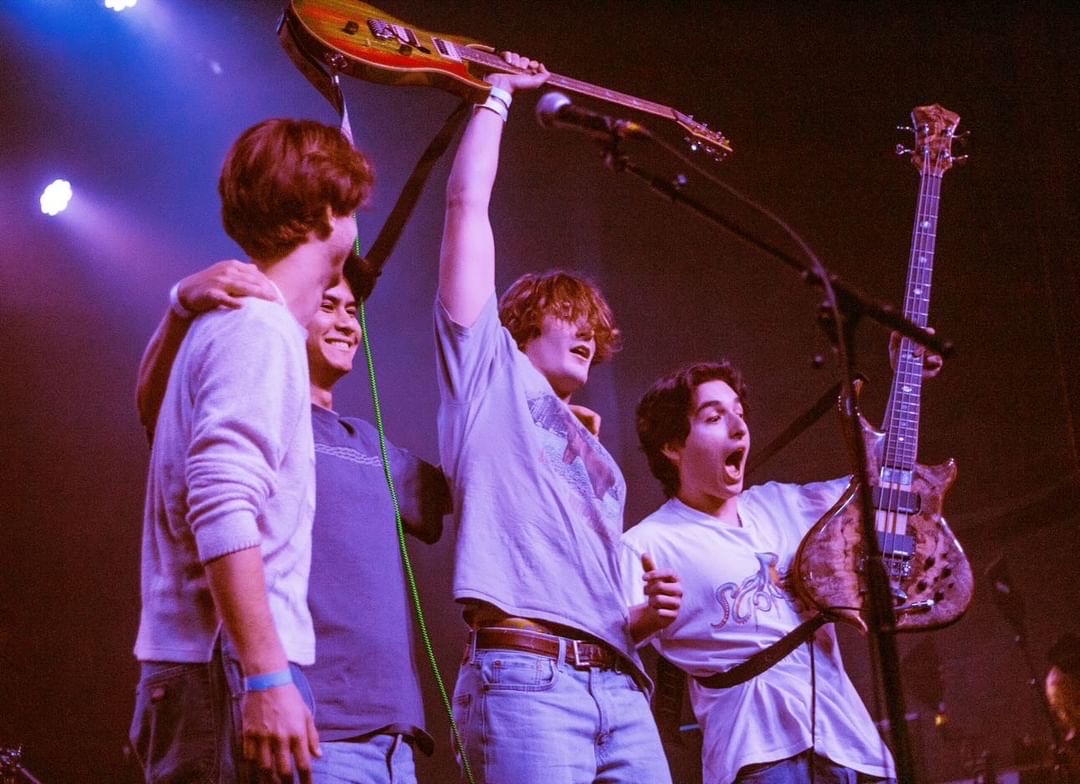As a young woman, I was intrigued and apprehensive about the premise of “Boys State,” the newest documentary debuted by Apple TV+. In the film, 1,000 Texas high school boys organized a bicameral government in a week in the American Legion sanctioned event. To be frank, I was worried the only thing I would recognize in the movie is the two sides of youth activism — one side being a passion for change, with the other side being an aching sense of powerlessness despite hard work.
There were a few things that made my apprehension turn to cynicism about “Boys State” and the lessons it could teach me. By the end of the movie, I realized this cynicism may have been misplaced, and I wasn’t alone. The boys in the movie demonstrated they felt the same way too in the midst of their mock elections and navigating the primarily white and aggressively masculine event.
“Boys State” closely follows four boys, Steven Garza, Ben Feinstein, René Otero and Robert MacDougall. All four come from different backgrounds and experiences: Garza is the son of immigrants and believes in the power of the American Dream, Feinstein is a double amputee and Ronald Reagan devotee, MacDougall is an outgoing gun-lover and Otero is a charismatic and masterful speaker. At some point in the movie, all four had difficulty navigating the unique atmosphere of the Boy’s State event.
Even Macdougall, one of the more extroverted and seemingly macho subjects of the film, felt the pressure of the event. Macdougall’s platform of being a pro-life, pro-gun candidate was not completely truthful to his personal beliefs.
“Boys State” had the unique ability to capture these moments as they happened, showing every worried glance, forced laugh and half-hearted mention of the previous year’s secession.
RELATED: UA filmmakers’ big night: I Dream in Widescreen 2020
In an interview with University of Arizona Student and A24 intern Pablo Perez, he made a case for the subject of the movie being beyond politics.
“If you say this movie is about politics, you’re wrong, because it has so much character. There’s different subjects that you follow along in this film,” Perez said.
In many ways, I agree with Perez’s statement. The movie is based in the interpersonal experience of the four boys who each expressed a unique idea of what politics could be.
Feinstein, for example, took an underhanded approach to politics, supporting his party’s candidate and taking advantage of the turmoil facing the leader of the opposing party, Otero.
This approach, regardless of its validity or correctness, had consequences.
“He said, ‘Okay, I have nothing to apologize for,’ because he was so okay with demagoguing an entire crowd against a person. Not a party, a person,” Otero said in the film.
Perez implied that these events were due to relative inexperience of the boys and their personalities.
“The element of how they are teenagers is their character,” Perez said. “In politics, [there are] people in their 50s trying to impose this image but these guys are themselves and you see them be themselves as they’re campaigning. I think that is where the element really falls in you don’t really see a politician’s face, you see a young person trying to figure out this government’s supposed to work.”
Otero had an opposing perspective in a New York Times op-ed he authored titled “I Attended Boys State, and Survived.”
“We were teenage boys whose only understanding of government was what we had seen adults doing. We were all participating in theater,” Otero said in the article.
RELATED: The ‘best kept secret’ of the School of Theatre, Film and Television
While the unique circumstances of “Boys State” aren’t entirely applicable to the upcoming election, both Perez’s and Otero’s views have a connection to the role of youth in politics. As someone who has heard countless versions of the sentiment that Gen Z will be faced with numerous unprecedented crises like climate change and systematic racism, it can be daunting to face the “kids will be alright” expectation of older generations. Whether this means Gen Z will act the part or be themselves becomes a secondary thought.
In the 2020 election, young voters are expected to turn out in significantly higher numbers than in 2016, rising from 47% to 63%.
Young voters have already been deeply impacted by the COVID-19-induced economic recession. One in three young people lost their jobs and 46% of young people have trouble buying basic necessities, according to a study done by Power California.
The events in “Boys State” do not entirely reflect the situations of young voters, but the journeys of each of the young men in the movie reflect the desire for change many young voters have.
Otero expressed this idea beautifully in his own words.
“I believe that to love America is to be as cynical about our political system as necessary until real change is made, because faith in what worked in the past won’t get us through,” Otero said.
“Boys State” is available to stream now through Apple TV+.
Follow Ella McCarville on Twitter















